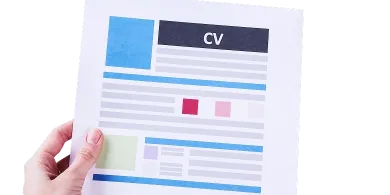Table of contents

Just like any job hunter, you know that resume plays a crucial role in getting a job interview offer.
Imagine: you have spent days and read tons of wholesome posts, trying to compose the best and the best resume just like a professional resume writer.
You believe that your ‘fruit of labor’ will impress an HR manager and almost immediately you will get the sacred offer.
Why does it happen? The answer is simple: because of common resume mistakes, you did not take it into account. It doesn’t matter if you write a basic graduate resume or a professional HR manager resume.
Even if you are aware of all the rules of resume composing from A to Z, that does not guarantee that you won’t make one, a little mistake and reduce the chances of getting that job. Let us figure out things that can kill any resume.
Can you write ‘Pubic” where Public was intended or ‘Manger’ instead of Manager? Yes, you can.
What are the odds that you will notice and correct this sad error before sending a resume to hiring managers?
You may be sure that you have proofread the text three times and there are no errors, but, unfortunately, a misprint may slip under your radar and you do not retrieve it. That will make a prospective hirer think you are not an attentive applicant.
That is why there are so many jokes and tales about spelling errors among HR managers. This is one of the reasons a lot of job seekers try to stay away from online resume generators.

Are you sure that your resume error won’t become the next brunt of jokes? Then use spell check to examine the draft, ask a friend or ensure this task to a professional resume writer. The best option is to consult a professional resume writer and ask him to review and edit your document.
Ever since one was at school, long texts are considered to be boring. Sometimes the author can’t set out the point and writes an ocean of unnecessary words.
A three-page resume can strike a warning note to a recruiter and he may get lost in lots and lots of information; in most cases, he will probably just move it to the rejection ream.
There is no burning need to describe every position you have ever held, every received reward, every training program, etc. The only exception is when your occupation requires you to distribute your work (like graphic design resume for example).
In order to make a positive first impression, you should highlight only those relevant details on your resume that concern the position. If you want to apply for different jobs, do not be afraid to compose different types of your resume.
Experienced recruiters, who have already read hundreds of resumes, can notice too standard resume without personality – this is the most common reason why most resumes fail.
Your resume should send a clear message to HR managers; it should explain to them what you want to do. This is the reason resume friendly name is so important nowadays.
Recruiters can’t attend to each detail and won’t have enough time to read between the lines to figure out whether the applicant is worth noting.
As a prospective employee, you have the characteristics hiring managers are looking for; you can ‘sell’ what managers need. Your resume is your marketing piece and your potential employer should like the idea of ‘buying’ you.
It is surprising, but most of the resumes with objective statements risk getting into the wastebaskets. In most cases, the objective focuses on what the candidate wants rather than on how his skills and knowledge match the job opening.
As it was mentioned in the Resume Writing Lab blog, recruiters receive hundreds of resumes, so your objective statement won’t differ from other objective statements; it will only make your resume too general. Keep in mind that the objective for a sales resume may be different from the customer service objective.
Consequently, very often HR managers ignore to read it, simply because they know it’s going to be there, be a default.
It is necessary to compose the document in such a systematic and planned manner so the reader will easily understand what the career objectives really are by perceiving the candidate’s accomplishments.

The absence of the cover letter is not a resume mistake, but in fact, a cover letter is the essential component of success.
Many job hunters ignore this document because they believe they have already highlighted all the details on resumes.
A cover letter is one more chance to speak to HR managers and share important professional information about you. Thus, sometimes both cover letter and resume can be essential.
Of course, there are much more things that diminish the chances of success.
Job hunters are recommended to avoid cursive and multiple fonts, do not overuse bullets; it is better not to use the personal pronoun “I” and be familiar.
Remember: your resume shouldn’t make the reader smile or chuckle; even if a recruiter is your friend, he is a recruiter, first of all, so your resume must be professional.
While some job seekers don’t understand why a CV is needed, others can’t get why it’s being rejected. Still, there are exact causes for it.
Firstly, it’s important to check the CV for all kinds of errors. No grammar, spelling, punctuation or other errors are accepted. All dates and contacts must be checked several times before sending a document.
The wrong format and the absence of structure and clear system can also be a reason why the CV is rejected. Such causes might seem ridiculous but a recruiter will prefer a candidacy with a flawless CV rather than you with the same level of qualification but disgusting document.
Secondly, you shouldn’t include a headshot in the CV. While resumes can contain a photo, CVs should omit it. Too short or too long CVs will also be rejected. You should keep your curriculum vitae no more than 3-4 pages but longer than 1 page.
The next reason for rejection can lie in the information provided in the CV. Too much personal information or exaggerated data is not what the recruiter wants to see. You should remember that all information can be checked for its trustworthiness.
One of the most irritating mistakes in CVs is unexplained employment gaps. Even if you were jobless for several months, turn this fact into a benefit and explain that the gap was caused by the long-lasting professional courses, sets of workshops. You simply needed time for self-improvement. If the person can’t competently explain something and convince a recruiter, it will be rejected.
Weird hobbies and interests can be the reason for the rejection too. There is no employer, who would like to work with a person, who is keen on horror movies about murders, mad people, mental hospitals, cemeteries, etc.
After all, check out that your CV is written in the first person as documents in the third person are usually rejected.